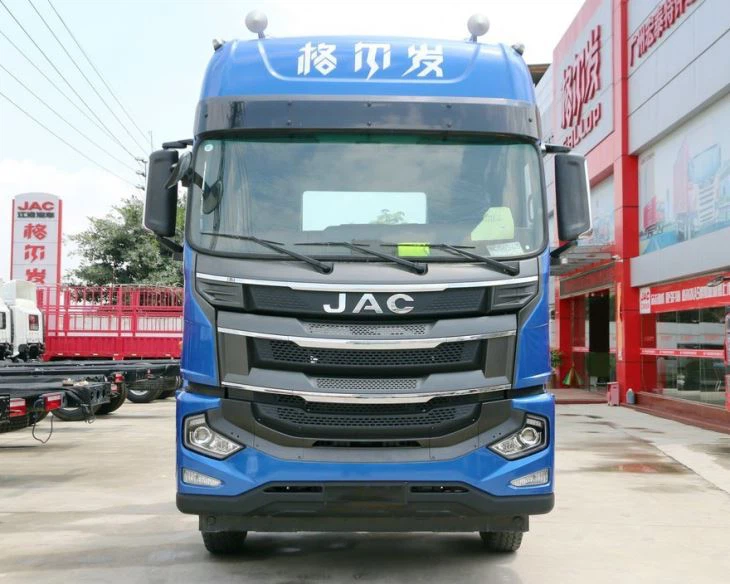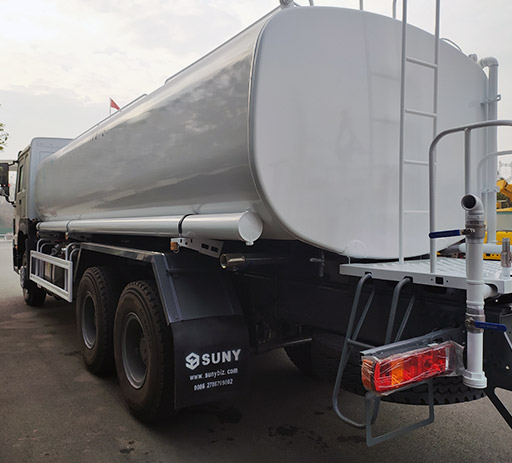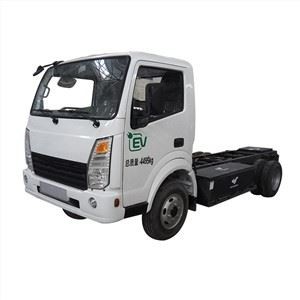Introduction
In the realm of transportation logistics, trailer tankers serve a pivotal role in the movement of various liquids, including fuels, chemicals, and food products. This article delves into the intricacies of trailer tankers, exploring their design, applications, maintenance, and the regulations surrounding them. Whether you are a fleet manager, logistics professional, or simply curious about this essential vehicle type, this guide aims to provide you with all the information you need about trailer tankers.

What is a Trailer Tanker?
A trailer tanker is a specialized vehicle designed for transporting liquids. Typically mounted on a semi-trailer chassis, these tankers can carry a range of substances, from hazardous chemicals to potable water. Their design enables them to navigate diverse terrains while maintaining safe transportation practices. Below, we explore the different types of trailer tankers available.
Types of Trailer Tankers
1. Fuel Tankers

Fuel tankers are specifically designed to transport various types of fuels, including gasoline, diesel, and aviation fuels. They often feature multiple compartments to carry different fuel types simultaneously.
2. Chemical Tankers
These tankers are designed to transport hazardous and non-hazardous chemicals. They have specialized coatings and vent systems to handle the unique challenges associated with transporting such materials safely.
3. Food and Beverage Tankers
Built for transporting liquids used in the food industry, these tankers must meet stringent hygiene standards. Common examples include milk tankers and those used for transporting juices and oils.
4. Water Tankers
Water tankers are used to transport large quantities of potable water. They are essential in both urban and rural settings, especially in areas lacking a reliable water supply.
The Construction and Components of Trailer Tankers
Understanding the construction and components of trailer tankers helps in appreciating their functionality and safety. Below are the primary elements of a trailer tanker.
Tanker Body
The body of a trailer tanker is typically made from aluminum or stainless steel, chosen for their durability and resistance to corrosion. The shape of the tank can vary, with cylindrical tanks being the most common.
Hydraulic and Pneumatic Systems
Many modern tankers are equipped with hydraulic or pneumatic systems to ensure proper loading, unloading, and stability. These systems help manage the flow of liquid and maintain balance during transit.
Safety Features
Safety is paramount in the design of trailer tankers. Key safety features include:
- Emergency shut-off valves
- Pressure relief valves
- Anti-sloshing baffles
- Reflective markings and lights
Applications of Trailer Tankers
Trailer tankers are used across various industries, each requiring specific adaptations based on the type of liquid being transported. The following sections elaborate on key applications.
1. Fuel Transportation
Fuel tankers play a crucial role in the supply chain for petroleum products. They transport fuel from refineries to distribution centers and directly to gas stations. The ability to carry large quantities without contamination is a significant advantage.
2. Chemical Transportation
In the agricultural and manufacturing sectors, chemical tankers are vital for transporting materials like fertilizers and solvents. Ensuring compliance with safety regulations during transportation is essential for minimizing environmental impacts.
3. Food Industry
Food-grade tankers must adhere to strict sanitary guidelines. They are crucial in transferring raw materials to production facilities and delivering finished products to retailers.
4. Construction and Municipal Services
Water tankers support various municipal services, including fire-fighting operations and disaster relief efforts. They also deliver water to construction sites where immediate water access is necessary.
Legal and Safety Regulations Surrounding Trailer Tankers
Operating trailer tankers comes with a set of stringent regulations to ensure safety and environmental protection. Below are key regulations applicable to tanker operations.

1. Transportation Safety Administration Regulations
The Transportation Safety Administration (TSA) oversees the transportation of hazardous materials. It mandates specific safety measures during the loading and unloading processes.
2. Environmental Protection Agency Guidelines
The Environmental Protection Agency (EPA) enforces regulations concerning environmental safety related to spills and leaks. Compliance with these guidelines is critical for preventing contamination.
3. State and Federal Regulations
Each state may have additional regulations governing the operation of tankers. Operators must stay updated about any changes in local laws that affect their operations.
Maintenance and Safety Checks for Trailer Tankers
Regular maintenance is crucial for ensuring the safe operation of trailer tankers. Below are essential maintenance practices.
1. Inspecting the Tank
Operators should conduct routine inspections to check for leaks, dents, and corrosion. Any signs of wear should be addressed immediately to avoid safety hazards.
2. Checking Safety Features
Regularly test safety features such as emergency shut-off valves and pressure relief systems to ensure they function properly. This testing should be part of a scheduled maintenance routine.
3. Cleaning and Hygiene
Food-grade trailers should be cleaned thoroughly after each use to prevent contamination. Establish proper procedures for cleaning to maintain hygiene standards.
Tips for Choosing the Right Trailer Tanker
Selecting the right trailer tanker is crucial for maximizing efficiency and safety. Here are some key considerations:
1. Assess Your Needs
Determine the type of liquid you will transport, considering factors such as temperature, viscosity, and potential hazardous characteristics.
2. Check Compliance Requirements
Ensure that the tanker you choose complies with all federal and state regulations related to the type of materials you plan to transport.
3. Evaluate Manufacturer Reputation
Choose a manufacturer with a strong reputation for quality and reliability. Research customer reviews and industry feedback before making a purchase.
Practical Examples of Successful Trailer Tanker Operations
Understanding real-world applications can provide valuable insights. Here are some examples:
Example 1: Fuel Distribution Company
A fuel distribution company implements GPS tracking for its tanker fleet. This system allows for real-time monitoring of deliveries, ensuring timely refueling for gas stations and minimizing response times for emergency fuel needs.
Example 2: Food Processing Plant
A food processing plant uses dedicated food-grade tankers for transporting milk from dairies. By employing a strict cleaning protocol and regularly inspecting tankers, they have maintained a flawless food safety record.
Frequent Questions About Trailer Tankers
1. What types of liquids can be transported in trailer tankers?
Trailer tankers can transport a wide range of liquids, including fuels, chemicals, food products, and potable water, depending on their design and safety features.
2. How do I ensure my tanker complies with regulations?
Stay updated on federal and state regulations, conduct routine inspections, and ensure that your tanker meets the latest safety standards.
3. What maintenance is required for trailer tankers?
Regular inspections for leaks and damage, testing safety features, and routine cleaning are essential for maintaining trailer tankers’ safety and performance.
4. Are there specific training programs for tanker drivers?
Yes, many states require specialized training programs for drivers operating tanker vehicles, focusing on safety, handling hazardous materials, and regulatory compliance.
5. What safety features should I look for in a trailer tanker?
Look for features such as emergency shut-off valves, pressure relief valves, anti-sloshing baffles, and reflective markings to ensure safety during operations.
6. Can trailer tankers be customized?
Yes, many manufacturers offer customization options to tailor tankers for specific liquid types, including compartmentalization, insulation, and safety features.